Avalokiteshvara & Padmasambhava in Ladakh, a Wooden Arch in Kinnaur & a Courtyard in Patan.
These are the latest additions to our collection of photographs from India, Tibet & Nepal. They are all available to buy in a range of sizes from A3 to 50x70cm in our Photographs Collection.
This is a distant view of the monastery at Lamayuru. Hidden away in the complex of corridors and prayer halls is a wonderful statue of the 1000 armed Avalokiteshvara, the Bodhisattva of Compassion, with 1000 eyes to see all the suffering in the world and 1000 arms and hands to relieve that suffering.
Avalokiteshvara, Chenresig in Tibetan, is one of the most important figures in Buddhism; for the Tibetans, the Dalai Lama is a manifestation of Avalokiteshvara.
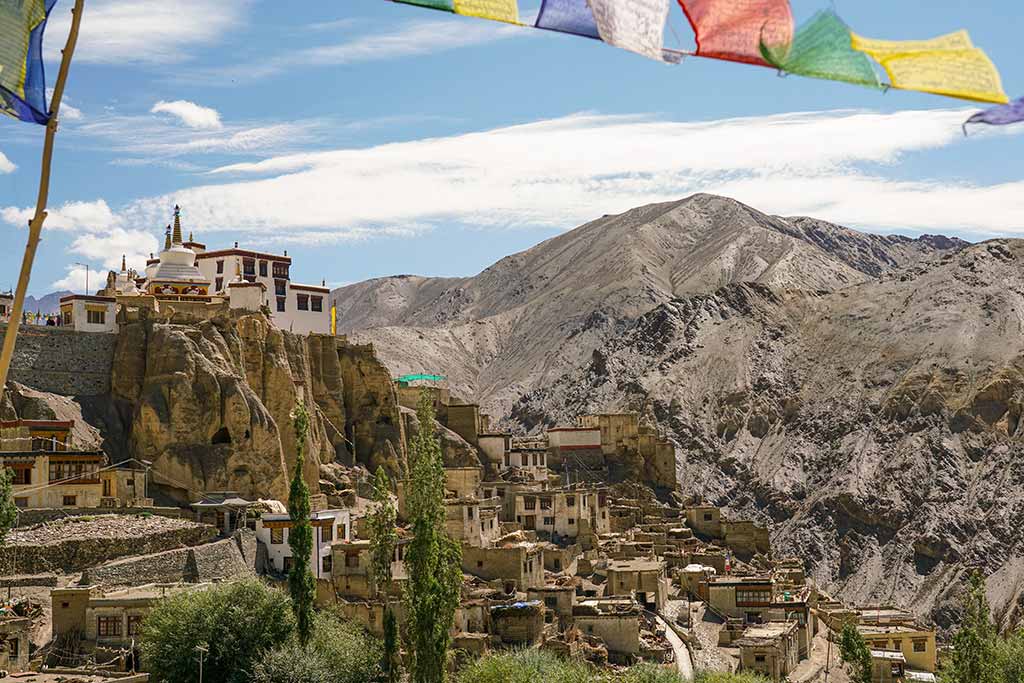
This is a detail of the 1000 armed Avalokiteshvara; you can see the entire image here.
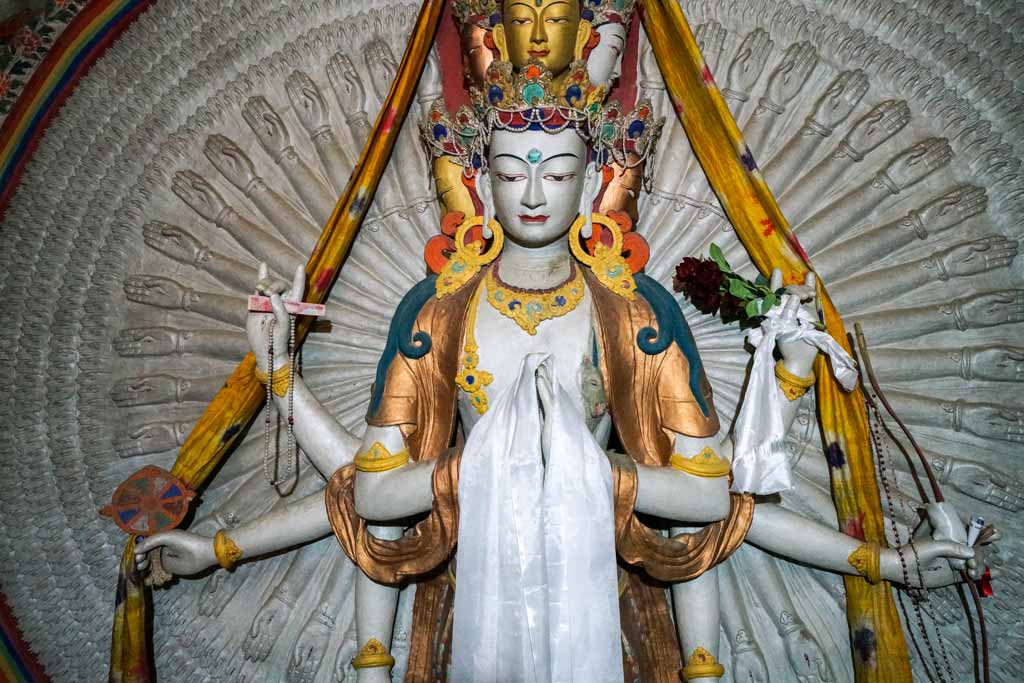
You can wander round Lamayuru all day. The older chapels are lower down the hill among crumbling passages and buildings that have surrendered back to the soft rock, nothing more than dried mud with embedded rocks. In one chapel we came across this old stupa, a mural of the teaching Buddha and a clay statue of Vajrasattva.

Staying in Ladakh for a while: in 2022 we returned to Chemre monastery, not far from Leh along the road that leads north to the beautiful lake of Pangong Tso and the border with Tibet. To get to Lamayuru you'd take a different route west towards Kashmir. On a hot day it's a stiff climb to the top of Chemre and if you miss the path you'll have to scramble across loose scree and over rough walls - but a new road takes you to the top by a less intersting route. Always best to arrive on foot!
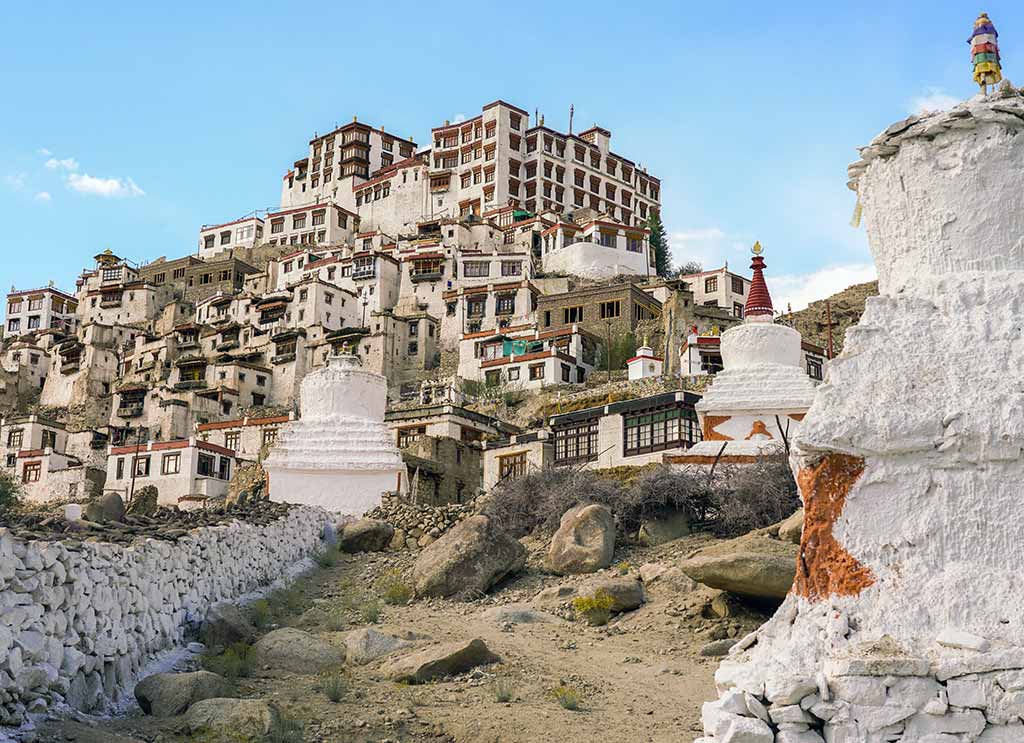
Making your way up through the monastery you wander through old prayer halls. On the way back down it's worth going to the excellent museum which has some very interesting old texts and rupa statues of Buddhas and Bodhisattvas.
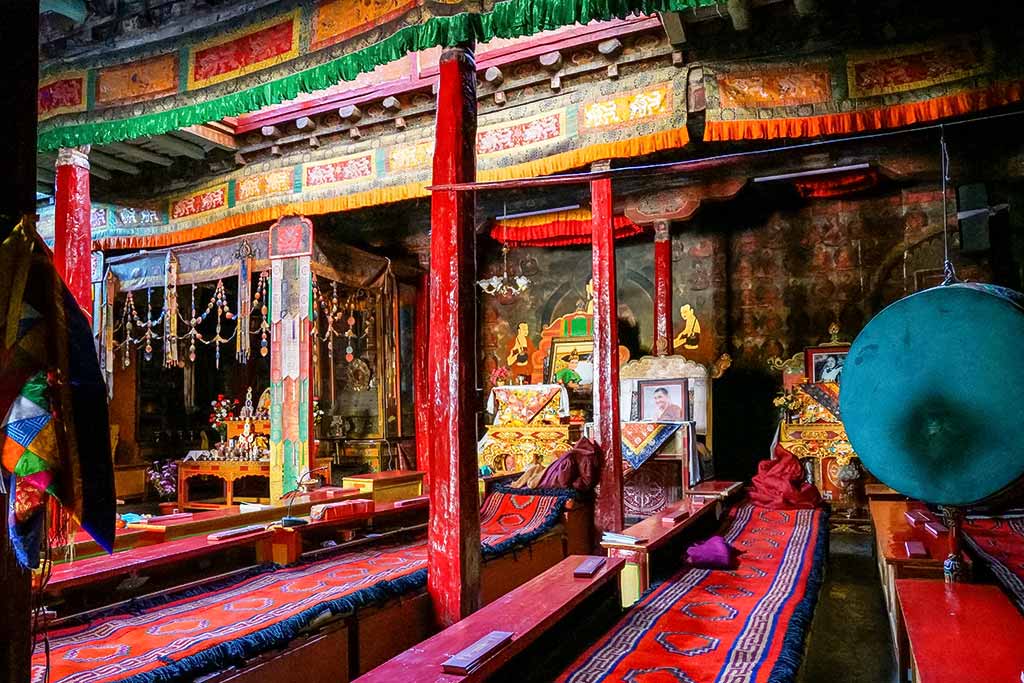
Finally you arrive at the new Guru Lakhang, the chapel of Padmasambhava, Guru Rinpoche. This is a detail of the statue which is one storey high. See the full image here. The expression is kindly yet implies urgency: this human life is precious, an opportunity to awaken.

Heading east we travel to Kinnaur for the next photo of an archway and staircase in a village near Kalpa. Kinnaur is a steeply sided forested region that includes the Sutlej river which drains out from western Tibet; along side it runs the old Tibet - Hindustan road.
Kinaur culture contain elements of Buddhism, Hinduism and Animism. It's an earthquake zone and the traditional buildings combine stone and wood cleverly interlocked to survive earth tremors.
A woman came out of her house to talk with us and invite us to her home. The houses are covererd in carvings and twisted out of shape from the movements of the earth.
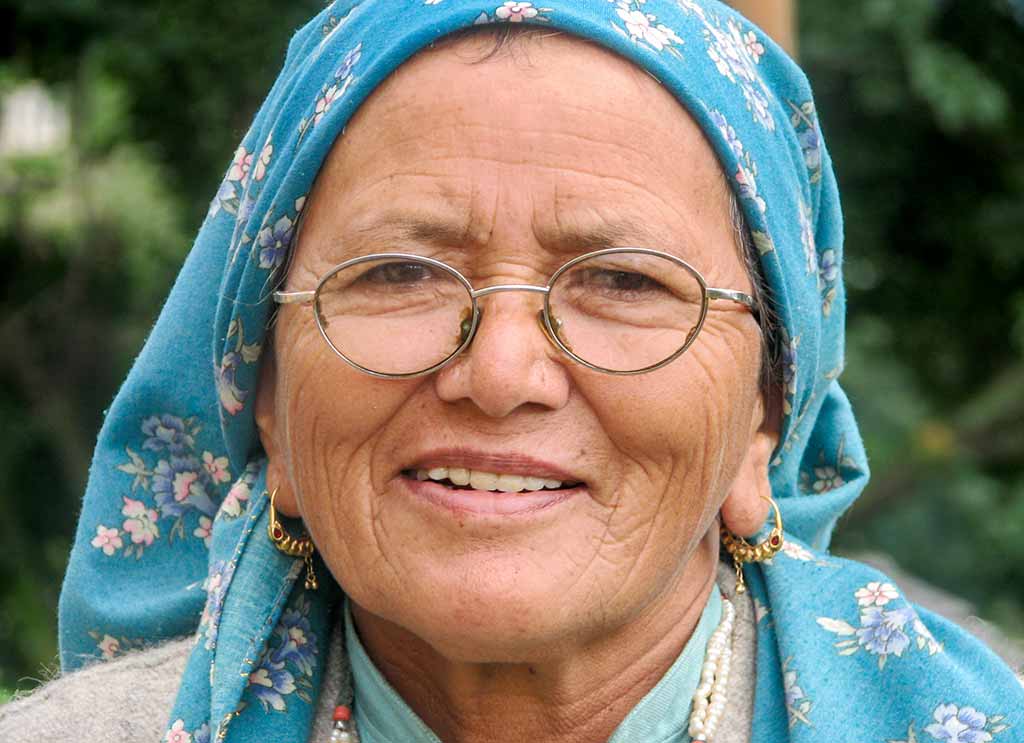
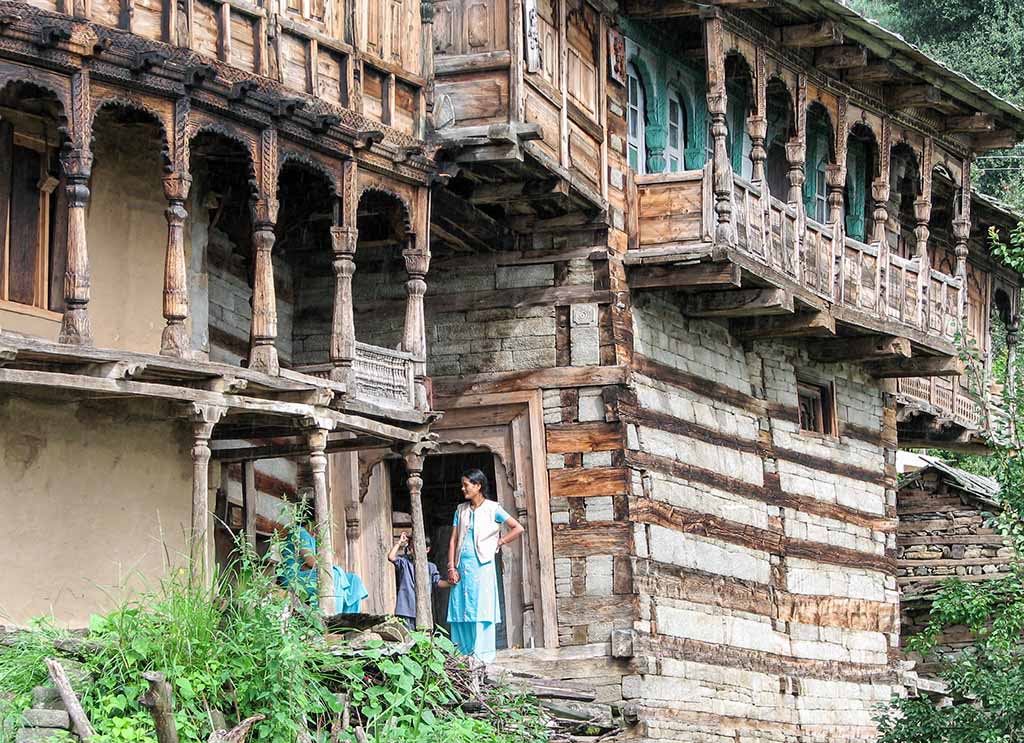
This image below is a detail of the photo you can buy in the Photographs Collection.
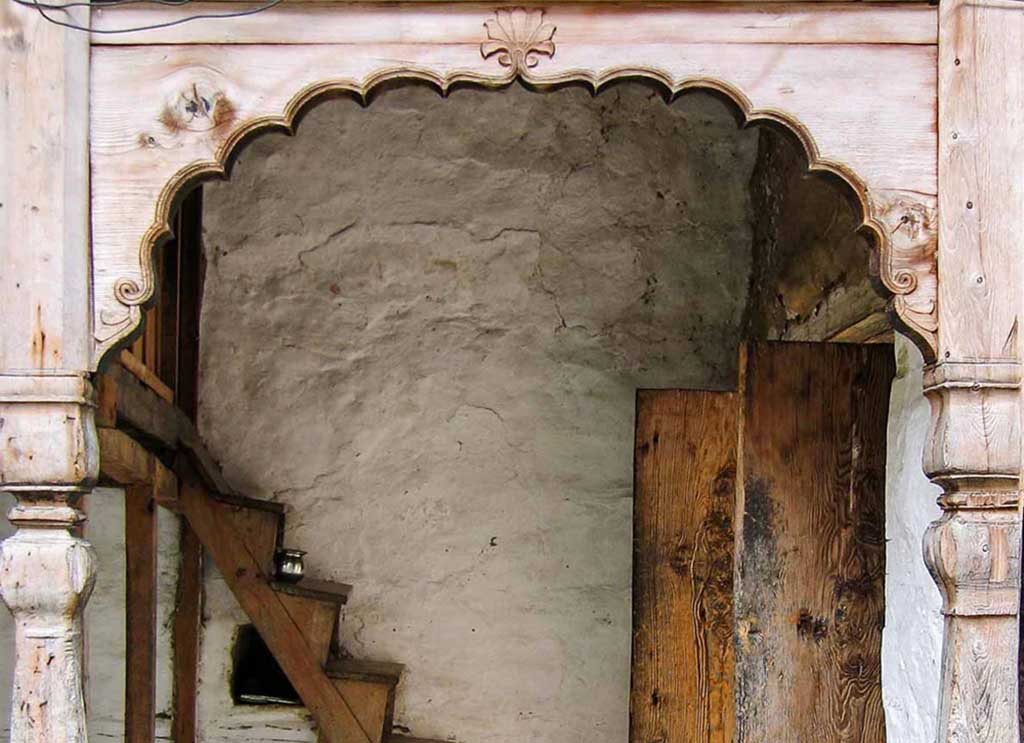
Continuing east again we arrive in the Kathmandu valley and a the lovely town of Patan. The old name of Patan is Lalitpur. John Bunyan modified the name of Lalitpur to Lilliput in his allegorical tale Pilgrim's Progress. Patan is full of architectural delights and small cameo scenes like this Brahmin priest waiting to give dispensations as people queue to be blessed by the shrines in the early morning.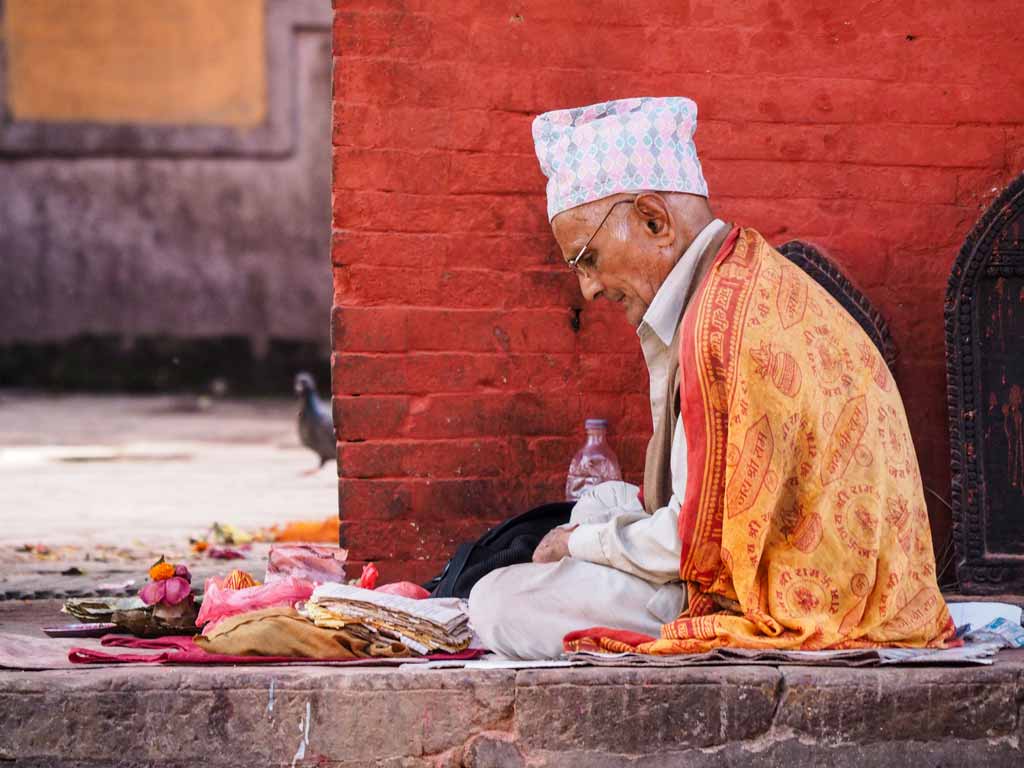
And here's the Courtyard in Patan that is the last of the four new photos in this blog. Buy it in the Photographs Collection here. We returned to Patan six months after the earthquake in april 2015 but we unable to locate this courtyard.

